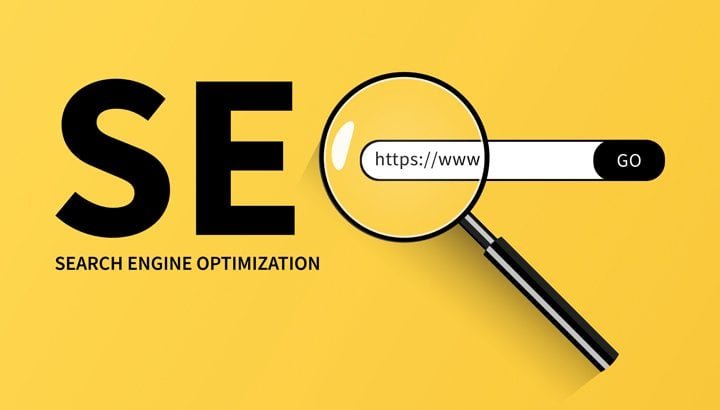This blog post is written with the purpose of SEO in context with your online course. When that’s said, the words “online course” will not be used, since the purpose of this blog is to give you a better understanding of SEO. So just keep in mind that even though it’s also about online courses, it will not be mentioned in this blog post. So you see, this comprehensive blog post is designed to provide you with all the fundamental knowledge and practical skills needed to rank your website at the top of Google search results. Whether you’re just starting out or looking to refine your existing skills, this blog post will equip you with the tools necessary to drive organic traffic to your site.
What is SEO and Why is it Important?
SEO is the practice of optimizing your website’s content so that it can be discovered through search engines’ organic search results. In simpler terms, SEO is about making your website more visible to people searching for relevant information, products, or services.
Understanding the importance of SEO is crucial for anyone looking to grow their online presence. Here are three key reasons why SEO should be a top priority:
Cost-Effective: Unlike paid advertising, organic search traffic is free. Once you achieve a high ranking, you can enjoy consistent traffic without ongoing costs.
Consistency: SEO leads to stable traffic. Once you rank highly, you can expect a steady stream of visitors, unlike the fleeting nature of social media or email marketing.
Reach a Larger Audience: With billions of internet users, optimizing your site for search engines allows you to tap into a massive audience that you might not reach through other marketing channels.

Understanding How Search Engines Work
To effectively optimize your website, it’s essential to understand how search engines operate. Think of search engines as libraries, where instead of books, they store copies of websites. When a user enters a query, the search engine crawls its index to find the most relevant pages.
Search engines use two primary processes:
- Crawling: Search engines deploy bots to discover new and updated pages on the web by following links.
- Indexing: Once pages are crawled, they are stored in an index. This index is what search engines refer to when a user conducts a search.
Keyword Research: The Foundation of SEO
Keyword research is the process of identifying the words and phrases that potential customers are using to search for products or services. It is the foundation of SEO because it informs your content strategy and helps you understand what topics to focus on.
How to Choose Keywords
To effectively choose keywords, consider the following checklist:
Search Demand: Ensure the keyword has a measurable search volume.
Traffic Potential: Assess the potential traffic you could receive if you rank at the top.
Business Value: Evaluate how valuable the keyword is to your business.
Searcher Intent: Determine whether you can match the intent behind the search.
Ranking Difficulty: Understand how difficult it will be to rank for the keyword.
On-Page SEO: Optimizing Your Content
On-page SEO refers to the practices used to optimize individual web pages to rank higher and earn more relevant traffic. This involves optimizing content, HTML tags, and images to improve the user experience and searchability.
Key On-Page SEO Factors
Here are some critical elements to consider when optimizing your web pages:
Title Tags: Ensure your title is engaging and includes your target keyword.
Meta Descriptions: Write concise summaries that encourage clicks from search results.
Header Tags: Use header tags to structure your content and improve readability.
Internal Linking: Link to other relevant pages on your site to enhance navigation.
Image Optimization: Use descriptive file names and alt text for images to improve accessibility and SEO.

Link Building: Building Authority
Link building is the process of acquiring hyperlinks from other websites to your own. These links are critical because they act as votes of confidence, telling search engines that your content is valuable and trustworthy.
Effective Link Building Strategies
Here are some effective strategies to build backlinks:
Guest Blogging: Write articles for other websites in exchange for a backlink.
Resource Links: Create high-quality resources that others will want to link to.
Broken Link Building: Find broken links on other sites and suggest your content as a replacement.
Technical SEO: Ensuring Crawlability
Technical SEO focuses on optimizing your website’s infrastructure to help search engines crawl and index your site efficiently. This involves ensuring that your site is fast, secure, and free of errors.
Technical SEO Best Practices
Here are some best practices for maintaining good technical SEO:
Optimize Site Speed: Ensure your pages load quickly to enhance user experience.
Use HTTPS: Secure your website with HTTPS to protect user data.
Implement a Sitemap: Create and submit an XML sitemap to help search engines find your pages.
Fix Broken Links: Regularly check for and fix any broken links on your site.
Monitor Site Health: Use tools to audit your site and identify potential issues.

Conclusion
By mastering the fundamentals of SEO, you can significantly improve your website’s visibility and organic traffic. This course has provided you with a solid foundation in keyword research, on-page SEO, link building, and technical SEO. Start applying these strategies today and watch your site climb the ranks in Google search results!

